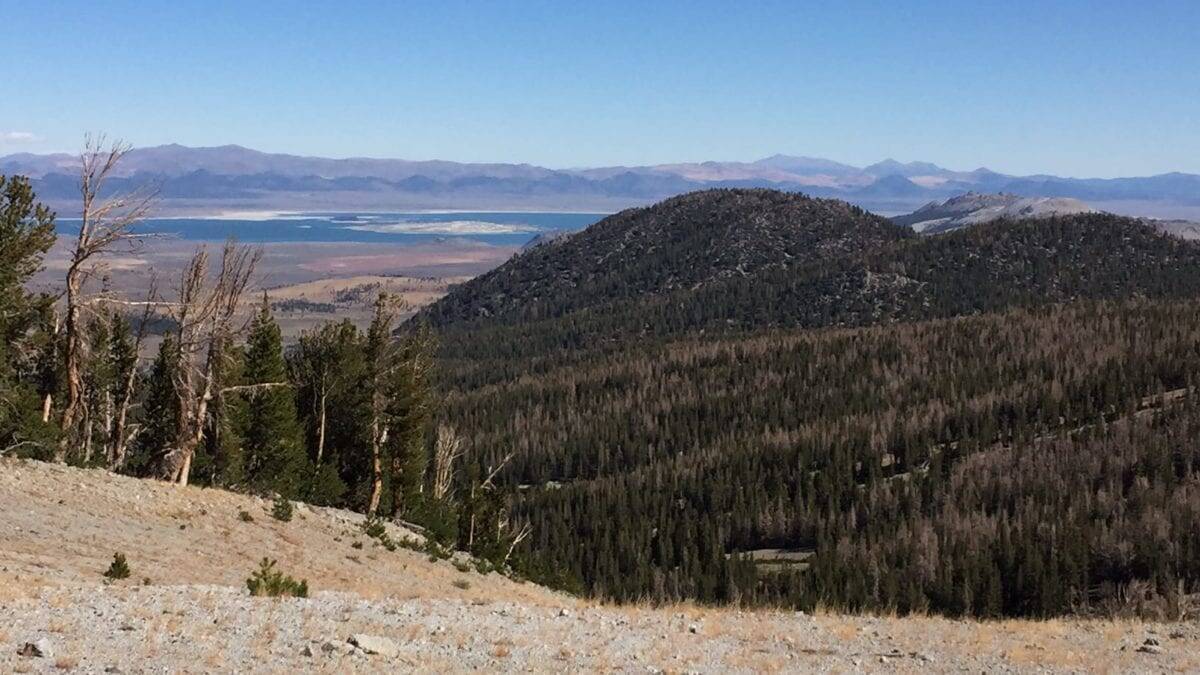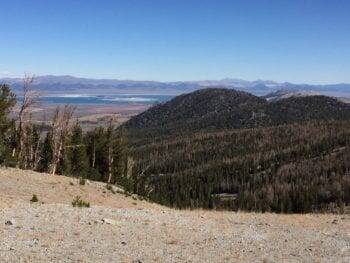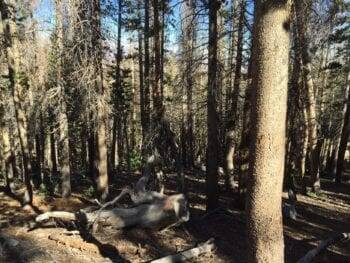Bark beetle-infested forest at June Mountain will soon be restored
Thanks to a generous National Fish and Wildlife grant, CalTrout will be restoring 110 acres of land and removing approximately 145 decaying trees at June Mountain, working in partnership with Inyo National Forest and Mammoth Mountain Ski Area. Over 70 years of fire exclusion, combined with periods of extended drought, have resulted in unnaturally dense, stressed forested stands that are currently experiencing high levels of bark beetle activity. This has resulted in an excessive amount of dead and dying whitebark pine trees. Removing them will improve forest health, decrease the risk of high intensity wildland fires, and protect aquatic resources. These lands are critically important to watershed health and forest resilience at the June Mountain Ski Area. An untamed wildland fire in this area would have catastrophic effects to June Lake and downstream Grant Lake and Rush Creek watersheds; these waterways are historic spawning grounds for wild brown trout.
Dr. Mark Drew, CalTrout’s Eastern Sierra Manager, discussed how the non-infested trees will fare with the removal of damaged trees: “These trees are stressed due to drought. The best thing we can do is try to improve the health of the living trees and to remove dead ones to eliminate dead wood for the beetles.” Dead tree removal will begin in July 2017.
CalTrout will be working with the US Fish and Wildlife Service to monitor the plants before and after tree removal. In addition, we’ll be developing and implementing an education and outreach program centered on forest health and expected outcomes from this restoration project.
The June Mountain Ski Area Whitebark Pine Restoration Project was recently covered in the Sheet, “Save the Trees!”.







